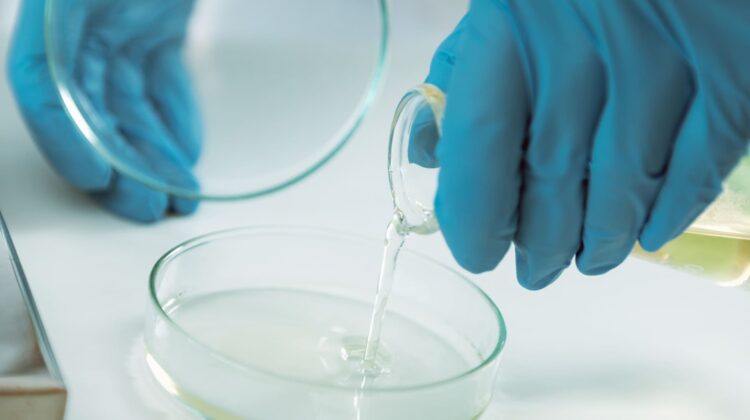
The Wonders of the Microscopic World: Exploring the Fascinating Realm of Microbiology
A Journey Through the Hidden Universe of Microorganisms and Their Impact on Our Lives
Our world is teeming with life beyond the realm of human perception: a microscopic universe populated by millions of diverse species that have an immense impact on our lives and the planet we inhabit. This article delves into the captivating world of microbiology, the scientific study of microscopic organisms such as bacteria, viruses, fungi, and protozoa. Join us as we traverse the fascinating frontier of this often-overlooked biosphere, uncovering its wonders and exploring its significant implications for human health, the environment, and our understanding of life itself.
Section 1: The Microscopic Menagerie
Microbiology encompasses an astonishing diversity of microscopic life forms, each with its unique attributes, functions, and behaviours. Some of the most crucial members of this menagerie include:
1.1 Bacteria: These single-celled organisms lack a nucleus but possess a rich and complex internal structure. Ubiquitous in nature, bacteria play a crucial role in decomposition, nitrogen fixation, and maintaining human health.
1.2 Viruses: Neither truly alive nor dead, viruses are infectious agents that can only replicate within host cells. They exhibit extraordinary diversity and can infect all forms of life, including bacteria, plants, and animals.
1.3 Fungi: Encompassing moulds, yeasts, and mushrooms, fungi are a diverse group of organisms that play vital roles in ecosystems as decomposers, symbionts, and pathogens.
1.4 Protozoa: These single-celled eukaryotes exhibit remarkable diversity and complexity. Found in diverse habitats, they can be free-living or parasitic, and play essential roles in food chains and nutrient cycling.
Section 2: Microbes and Human Health
The microscopic world has profound implications for human health, with both beneficial and detrimental effects. Key areas of microbiology’s impact on health include:
2.1 The human microbiome: Our bodies are home to trillions of microorganisms that form a complex, mutually beneficial relationship with us. This microbiome helps digest food, synthesise vitamins, and protect against harmful pathogens.
2.2 Infectious diseases: Microbes are responsible for a wide range of human diseases, from the common cold to life-threatening illnesses like tuberculosis and Ebola. Understanding the biology of these pathogens is crucial for developing effective treatments and preventive measures.
2.3 Antibiotics and antimicrobial resistance: Since the discovery of penicillin, antibiotics have revolutionised medicine by treating bacterial infections. However, the overuse and misuse of antibiotics have led to the emergence of antibiotic-resistant bacteria, posing a significant threat to global health.
2.4 Vaccines: Microbiology has been instrumental in the development of vaccines that protect against viral and bacterial infections, saving millions of lives and eradicating devastating diseases like smallpox.
Section 3: Microbes and the Environment
Microorganisms play a crucial role in sustaining our planet’s ecosystems, participating in processes such as:
3.1 Decomposition: Microbes are nature’s recyclers, breaking down organic matter and returning nutrients to the soil, thus maintaining the balance of ecosystems.
3.2 Nitrogen fixation: Certain bacteria can convert atmospheric nitrogen into a form that plants can utilise, thus playing a critical role in the nitrogen cycle.
3.3 Bioremediation: Microbes can be harnessed to clean up environmental pollution, such as oil spills and toxic waste, through a process known as bioremediation.
3.4 Climate change: Microbes also influence climate change, with some producing greenhouse gases like methane, while others help to capture and store carbon in the environment.
Section 4: Microbial Technologies and Innovations
The study of microbiology has paved the way for groundbreaking innovations that have transformed industries and improved our quality of life:
4.1 Fermentation: Microbial fermentation processes have been utilised for millennia to produce food and beverages such as bread, beer, cheese, and yoghurt, enriching our culinary experiences and enhancing the nutritional value of our diets.
4.2 Biotechnology: Microorganisms are used in a range of biotechnological applications, from producing recombinant proteins and enzymes for medical and industrial use, to engineering microbes that generate biofuels or biodegradable plastics.
4.3 Gene editing and synthetic biology: Advances in microbiology have enabled scientists to manipulate the genetic material of microorganisms, allowing for the development of gene editing technologies like CRISPR and the burgeoning field of synthetic biology, which holds the potential to revolutionise medicine, agriculture, and environmental management.
4.4 Pharmaceuticals: Microbes are a rich source of bioactive compounds that have led to the discovery of numerous life-saving drugs, such as antibiotics, anticancer agents, and immunosuppressants.
Conclusion
The world of microbiology is a realm of awe-inspiring complexity and diversity that is intimately interwoven with our own existence. By studying and harnessing the power of microbes, we have made incredible strides in understanding life’s fundamental processes, improving human health, and finding sustainable solutions to some of our most pressing environmental challenges. As we continue to explore the microscopic universe, we may yet discover new insights and innovations that have the potential to transform our world for the better. As the eminent scientist Louis Pasteur once remarked, “The role of the infinitely small in nature is infinitely great,” reminding us that the wonders of the microscopic world are indeed a testament to the endless marvels of the natural world that surrounds us.
